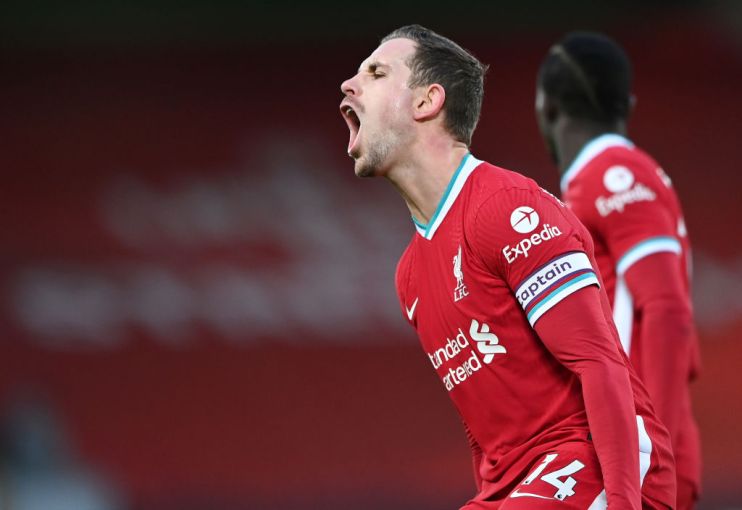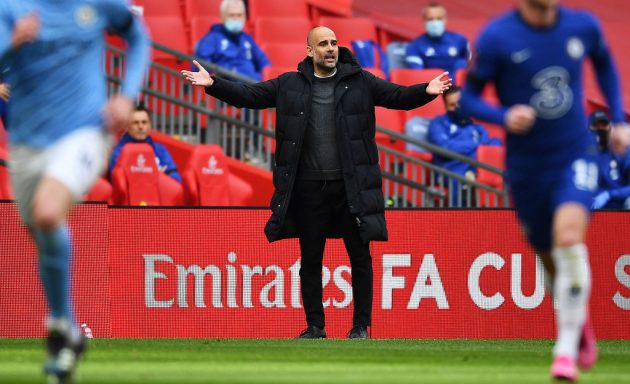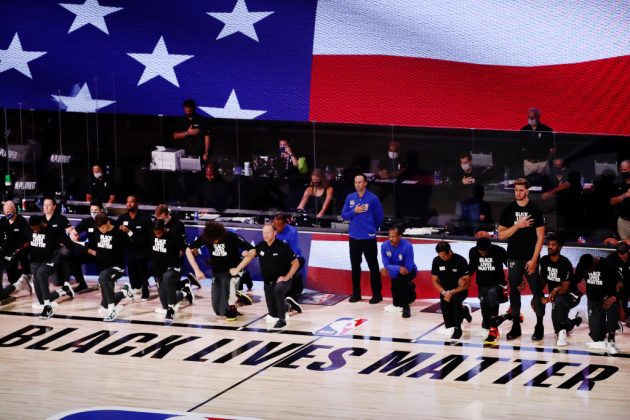A significant skirmish in an intensifying war: How player power helped bring the European Super League to its knees

James Milner seemed to speak for many Premier League players and managers when he said on Monday: “I don’t like it and hopefully it doesn’t happen.”
The Liverpool midfielder was referring to the European Super League, the audacious and ultimately short-lived breakaway launched by 12 of Europe’s richest football clubs just hours earlier – including his.
A day after Milner voiced his opposition, club captain Jordan Henderson tweeted that the Liverpool players’ “collective position” was to condemn the European Super League plans.
They weren’t the only ones. Other players at the so-called ‘Big Six’ English clubs, such as Manchester United’s Marcus Rashford and Arsenal’s Hector Bellerín, used social media to criticise the new competition.
Senior players at both Chelsea and Manchester United, meanwhile, were reported to have asked their clubs’ owners to reconsider the divisive plans.
And even managers including Manchester City’s Pep Guardiola came out against the European Super League and its format, which meant its founders could never be relegated.
“It’s not sport when there is no relation between effort and success,” said Guardiola. “It’s not sport if it doesn’t matter if you lose.”
The backlash from across the game appeared to work. Just 48 hours after announcing the project, all six English clubs withdrew from the European Super League, effectively halting it.
Players’ collective voice
Footballers did more than offer the odd soundbite. On Tuesday, Henderson called an emergency meeting of the Premier League’s 20 club captains to discuss the breakaway, as it became clear that players were united in their opposition.
The Professional Footballers’ Association, the sport’s trade union for England and Wales, also issued a statement on behalf of its 4,000 members.
It criticised the European Super League’s uncompetitive format and argued the competition would damage the financial health of smaller clubs.
After English clubs’ U-turn brought down the plans, players and managers were praised for adopting an uncharacteristically outspoken stance.
“We are proud of our members – many put in a difficult position by their clubs’ owners – who stood up for the game they love,” said a PFA spokesperson.
“With absolute conviction, they passionately articulated why the preservation of the domestic game is so important.”
The League Managers Association also praised its members. An LMA spokesperson said: “The views expressed with such clarity, consideration and passion over the last three days, by numerous clubs, managers, coaches, players and fans from all levels of the game, demonstrate that their collective voice matters.”
This is not the first time that players and coaches have used their collective voice.
In April 2020, Henderson led the #PlayersTogether campaign, a footballer-led initiative that raised money for NHS staff at the start of the coronavirus pandemic.
Rashford, meanwhile, is known almost as much for using his Twitter account to champion social justice causes and campaign to end child food poverty in the UK.
Following their American peers, players and coaches also spoke out against racism after the murder of George Floyd, with many kneeling before matches to show their support for the Black Lives Matter movement.
“People are engaging with players more than with teams,” says Simon Chadwick, a professor of Eurasian Sport at France’s Emlyon Business School.
“Players are also being thrust into the spotlight by politicians seeking to capitalise upon who they are and what they do. It seems inevitable that more and more players will feel compelled to express their views.”

What is notable about the European Super League debacle is that players who spoke out were directly challenging the viewpoint of their clubs’ owners.
“One of the things I found most striking about the episode was that employees seemed willing to publicly express viewpoints that were clearly in opposition to those of their employers,” says Chadwick.
“This possibly reveals that players, coaches and managers retain considerable power.”
‘A significant skirmish’
Player power is an important factor in American sport because it favours a closed league system similar to the kind the European Super League tried and failed to introduce.
NFL, NBA, and MLB players’ unions often act collectively to strengthen their position against team owners.
In 1994 and 1995, baseball players went on strike for 232 days against a proposal to introduce a salary cap.

And in 2014, NBA players and coaches protested Los Angeles Clippers owner Donald Sterling after he made racist remarks. The league’s commissioner issued Sterling with a lifetime ban and a $2.5m fine.
The European Super League is the latest instance of sportsmen acting collectively against their employers, with players and coaches siding with fans rather than owners.
Players used their collective voice to support the NHS and to condemn food poverty and racism. It is now clear that they also stand collectively against corporate greed at any cost.
“Such collective action has been simmering for a while,” says Chadwick. “We are witnessing a rise in athlete activism, which seems in part to be driven by social media.
“The failed Super League doesn’t necessarily mark a revolution, but it does seem to be a significant skirmish in what is an intensifying war.”